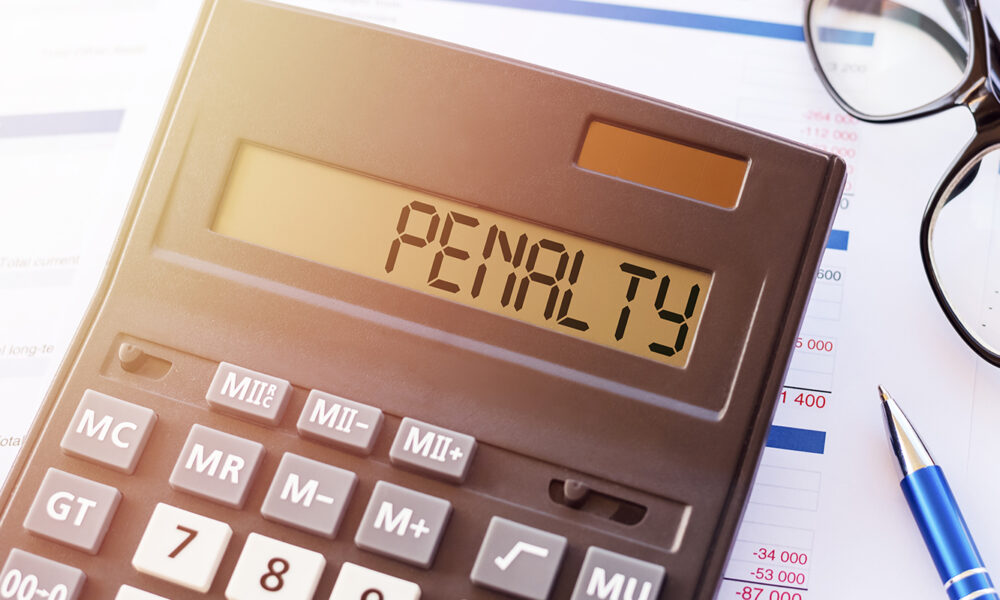HMRC Penalties Explained: How to Avoid Fines and Interest Charges
Introduction: Why Understanding HMRC Penalties Matters
Dealing with taxes can feel daunting — especially when the penalties from HMRC start mounting. This article titled “HMRC Penalties Explained: How to Avoid Fines and Interest Charges” is designed to help you, whether you’re an individual taxpayer or a business owner, understand how HMRC penalties work in 2025 and what you can do to steer clear of mistakes.
Understanding the latest rules and interest rates is crucial. Missing deadlines or submitting inaccurate information can lead to escalating fines, stress and unnecessary costs. This updated 2025 guide walks you through penalty types, interest charges, timelines, appeal options, and practical strategies to stay compliant.
What Are HMRC Penalties? An Overview
Who is liable for HMRC penalties?
Any UK taxpayer — individuals, landlords, self-employed workers, limited companies, contractors and partnerships — may face HMRC penalties. These arise when you fail to meet obligations such as filing returns on time, paying tax owed, notifying HMRC of new liabilities or providing accurate information.
Key types of tax obligations and late-filing exposure
Common obligations include:
- Filing your Self Assessment tax return
- Paying tax liabilities on or before the due date
- Submitting accurate returns without errors
- Registering for VAT and filing VAT returns on time
- Keeping records and reporting income or gains
Late filing and late payment are the most frequent triggers for penalties.
Late Filing Penalties: Key Rules and Latest Rates
Self Assessment: late filing penalties (2025/26)
If you miss the filing deadline for Self Assessment, HMRC applies the following penalties:
- 1 day late: Automatic £100 fixed penalty
- 3 months late: Daily penalties of £10 per day, up to £900
- 6 months late: Additional penalty of the higher of £300 or 5% of the tax due
- 12 months late: Another penalty of the higher of £300 or 5% of the tax due
Even if you owe no tax, the initial £100 penalty still applies.
Corporation Tax & Company Returns: what happens if you miss deadlines
Companies that miss CT600 filing deadlines face:
- 1 day late: £100 fixed penalty
- 3 months late: Another £100
- 6 months late: 10% of the unpaid Corporation Tax
- 12 months late: Another 10% of unpaid Corporation Tax
For repeated late filing, penalties are higher.
Late Payment Penalties & Interest: How Costs Escalate Over Time
Late payment interest: latest rate and calculation
From April 2025, HMRC’s late payment interest rate rose due to UK base rate increases, reaching around 8.5% per year, calculated daily. Even short delays can accumulate noticeable interest.
Additional percentage penalties for 30 days, 6 months, 12 months late
Beyond interest:
- 30 days late: 5% of unpaid tax
- 6 months late: Further 5%
- 12 months late: Another 5%
Missing filing deadlines may add more penalties on top.
Inaccuracy, Failure to Notify and Other Penalties
Penalties for inaccurate returns
If a return contains errors that result in underpaid tax:
- Careless errors: Up to 30% of extra tax owed
- Deliberate errors: Higher penalties, potentially 100%
- Deliberate and concealed: Even higher rates
Accurate record-keeping is your strongest defence.
Failure to notify: unreported income or gains
Failing to notify HMRC of taxable income, new business activity or gains is subject to penalties, especially if the failure appears deliberate.
Recent Changes & Regulatory Updates (2024-25)
New VAT penalty points regime
The new VAT penalty points system introduces:
- Points for each late VAT return
- £200 penalty when you hit the threshold
- Reset periods if you file consistently on time
Additionally, VAT late-payment penalties now apply at:
- 3% at day 15
- 3% at day 30
- Daily charges from day 31
Late payment interest rate increases
Interest rates on late tax payments increased in 2025, adding more financial pressure on those who delay.
How HMRC Calculates Penalties: Key Drivers
Amount of tax owed
The greater the unpaid tax, the larger percentage-based penalties will be.
Duration of delay
Penalties escalate quickly the longer you wait.
Behaviour: careless vs deliberate
HMRC categorises behaviour as:
- Reasonable care
- Careless
- Deliberate
- Deliberate and concealed
Your behaviour directly affects penalty rates.
Practical Strategies to Avoid HMRC Penalties
Meet deadlines: filing and payment
- Add filing deadlines to your calendar
- Pay as much as you can by the due date
- File on time even if you can’t pay in full
Keep accurate records
- Track income, expenses and receipts
- Keep digital copies
- Separate business and personal transactions
Use digital systems (MTD & online filing)
Using compatible software reduces errors and ensures compliance.
Time to Pay arrangements if you cannot pay
If you cannot pay in full, contact HMRC early to set up a payment plan. Acting before a deadline can reduce penalties.
What to Do If You Already Have a Penalty
Review the penalty notice
Check:
- The tax year
- The amount
- The reason for the penalty
- The appeal deadline
Appeal on the basis of “reasonable excuse”
Valid excuses may include:
- Technical issues
- Serious illness
- Bereavement
- Postal delays
You must act promptly once the issue ends.
Agree a payment plan or mitigate future risk
If you owe it, set up a payment plan and adjust systems to avoid repeat penalties.
Case Studies: Real-world Examples
- A business missing multiple VAT returns accumulated enough points to receive several £200 penalties.
- A taxpayer filing 12 months late paid more in penalties and interest than the tax itself.
- A company filing its CT600 late twice saw penalties double for repeated behaviour.
Implications for Small Businesses vs Individuals
Small businesses face more filing obligations, making them more exposed to penalties. Individuals, meanwhile, can still face fixed penalties even when no tax is due.
Frequently Asked Questions (FAQ)
Q1: What counts as a “reasonable excuse”?
Serious illness, unexpected emergencies, or HMRC system failures.
Q2: Do I still pay interest if I pay part of my tax late?
Yes — interest applies to any unpaid proportion.
Q3: Can cooperating with HMRC reduce penalties?
Yes. Voluntary disclosure often reduces penalty percentages.
Q4: How long do I have to appeal a penalty?
Usually 30 days from the date on the penalty notice.
Q5: How do I know if I need to file Self Assessment?
If you have untaxed income, are self-employed, or earn certain types of income.
Q6: Do penalties apply even if no tax is owed?
Yes — the £100 Self Assessment late-filing penalty still applies.
Conclusion & Key Takeaways
Understanding HMRC penalties is essential to avoid unnecessary costs. Key reminders:
- File and pay on time
- Keep good records
- Correct errors quickly
- Contact HMRC early if you can’t pay
- Stay updated with new rules
Proactive compliance always costs less than letting penalties build up.






